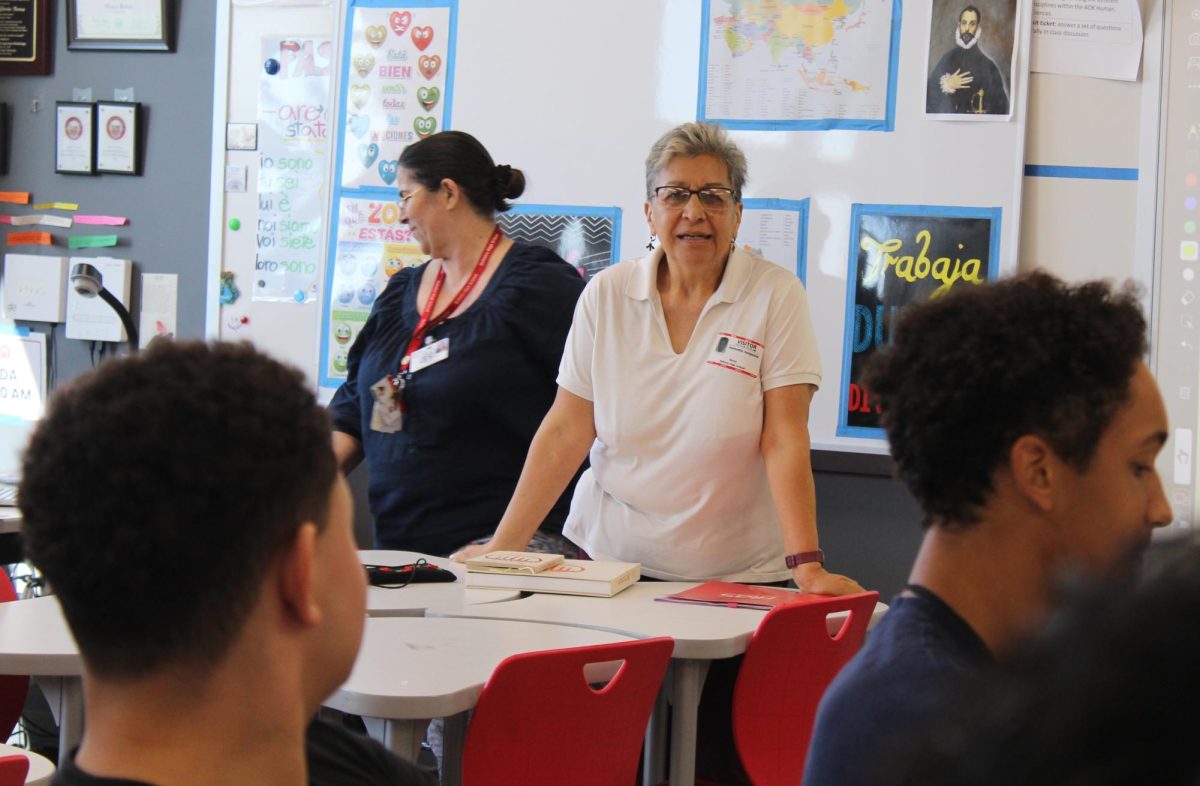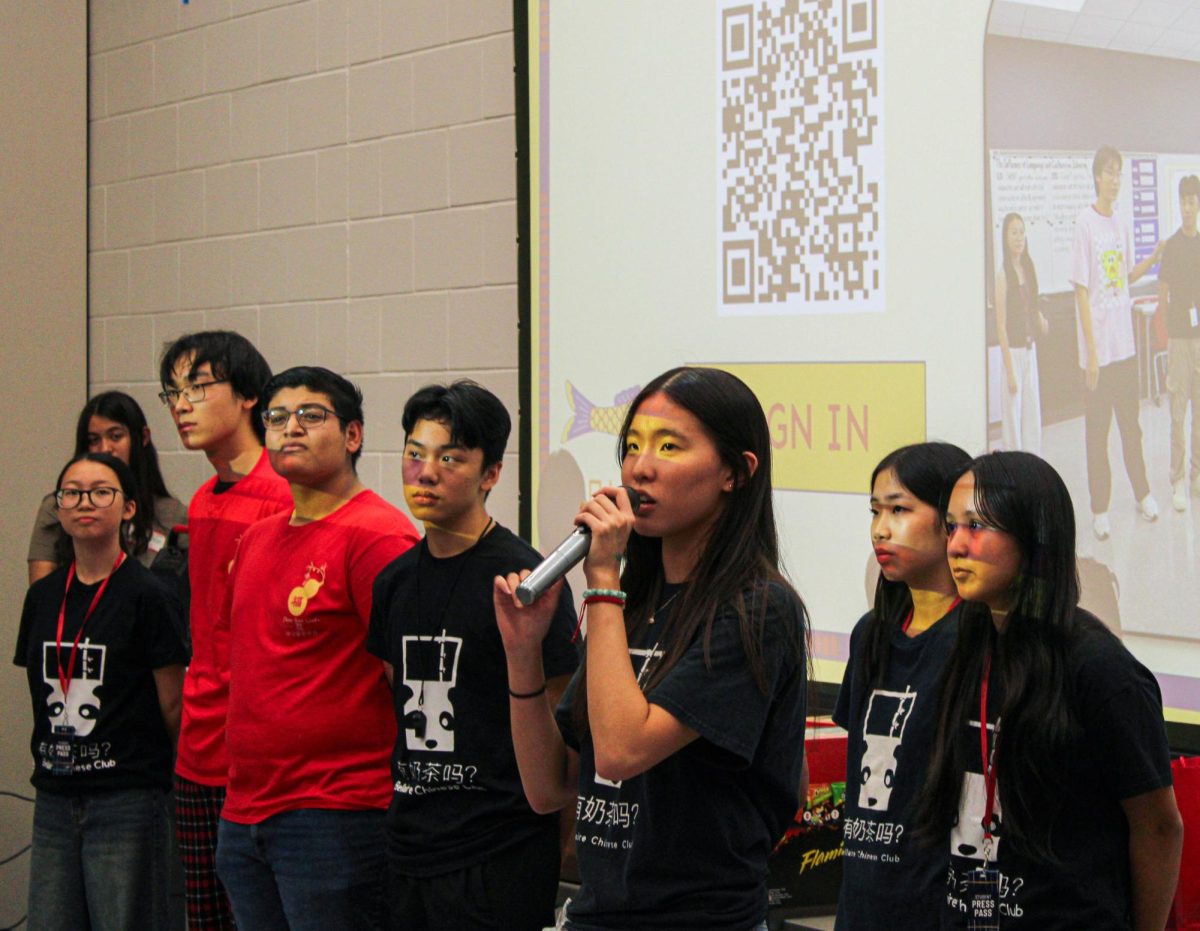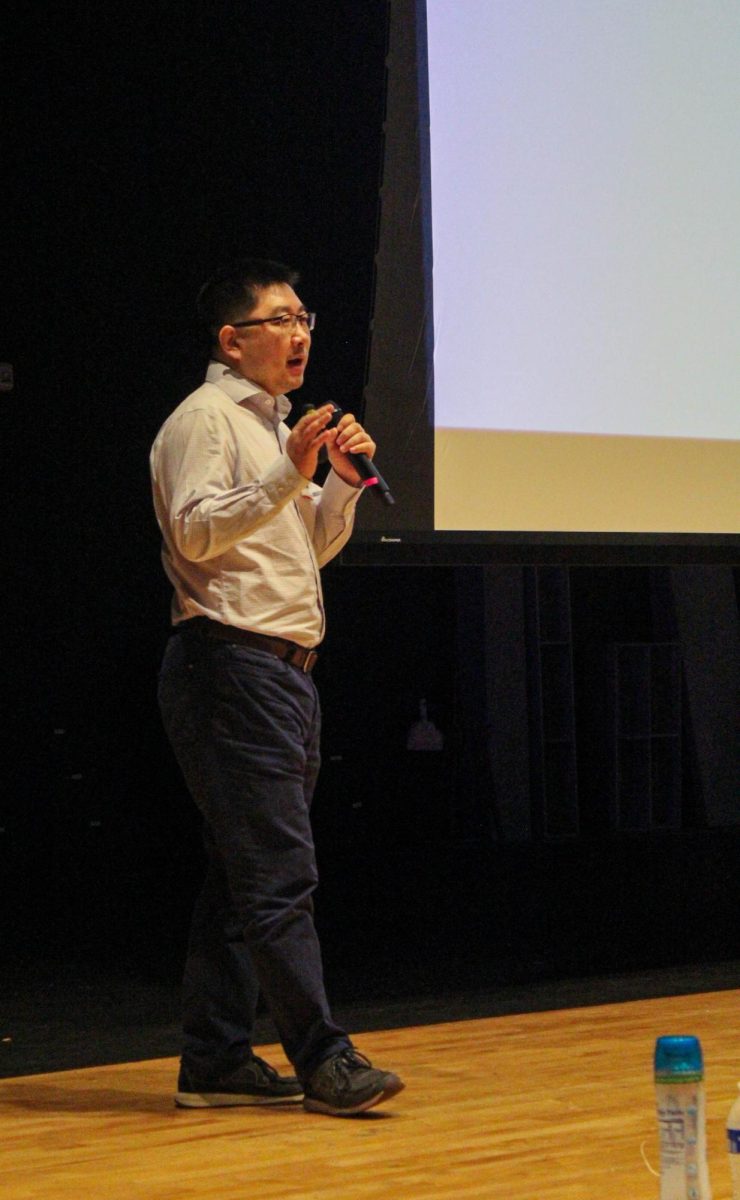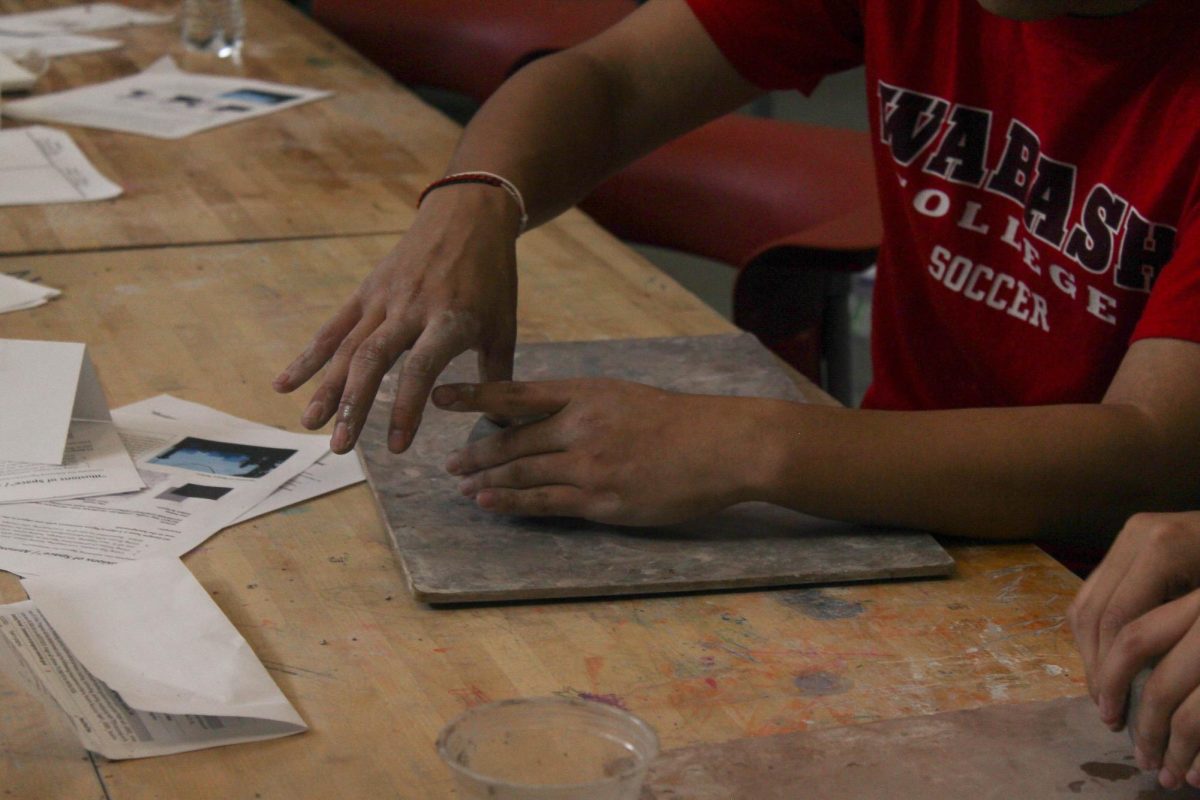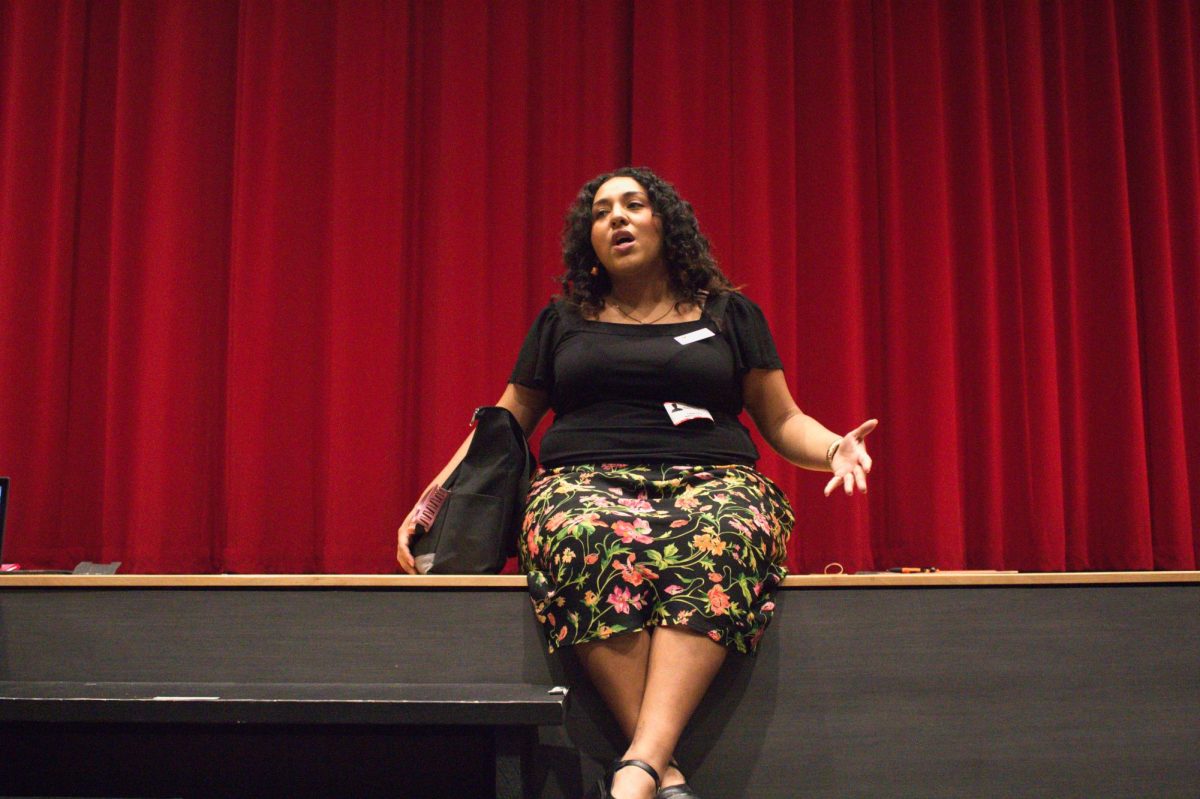Para leer la versión en español, haga clic aquí.
Jeannette Insignares, a translator for English, Spanish and French, discussed translation techniques and her work with AP Spanish Literature students on Oct. 12.
AP Spanish Literature teacher Maria Gloria Borsa organized the event.
“I’m part of Servas International, a pacifist organization,” Borsa said. “Within this organization, we receive travelers. So, when I received her request to be hosted and [I saw] in her letter of introduction she wrote that she was a translator, I thought this could be interesting for my students.”
Insignares primarily works as a commercial translator but also does literary translation. At the discussion, she talked about her recent work, translating “People Who Walk” by Mariela Zuluga, a book that details the struggles of a group of indigenous nomads.
“She told me about the book she had published,” Borsa said. “That [was] even more interesting [than her commercial translating work], because the book is about this indigenous tribe that is the last nomadic tribe in South America. We had talked about indigenous people when studying literary texts. I wanted [my students] to have [more] insight into the indigenous populations of Colombia.”
Insignares also taught students about translation techniques, the different types of translations and what being a translator entails.
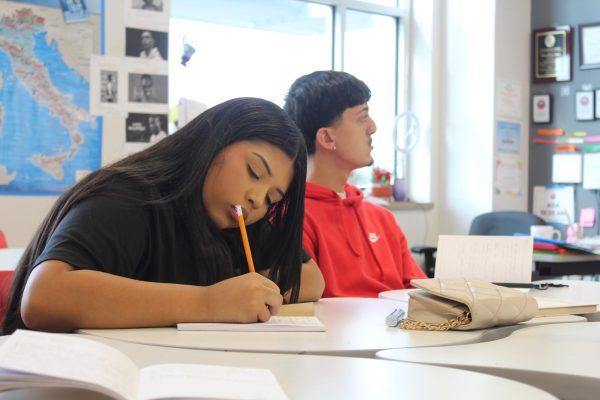
“I think that studying Spanish literature doesn’t just have to be to fall in love with literature, it can also be a path towards a career,” Borsa said. “Literature is a living thing, it’s not a book to put on a shelf to get dusty. I think it’s very interesting to see that someone is actually [making a] living out of translating, in this case, literary translation.”
AP Spanish Literature student, sophomore Ruby Olsen, who has been learning Spanish for 12 years, attended Insignares’ talk.
“I have taken Spanish for such a long time and being a translator could be such a great opportunity,” Olsen said. “It is so important to be able to translate correctly because important details or the meaning of what is trying to be said might get altered.”
Borsa plans to continue bringing in speakers to help her students prepare for the AP exam in May. She aims to help her students think more broadly about the significance of learning Spanish. Translation is one way her students can use their Spanish.
“Interpretation [and translation are important] because it makes it possible for people from different cultures to communicate,” Insignares said. “The translator is a bridge between two cultures.”


